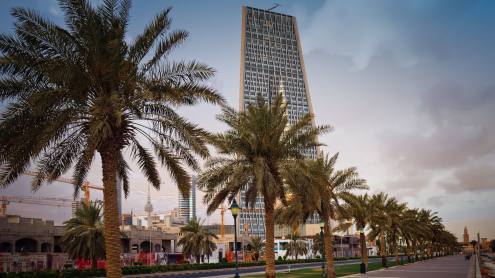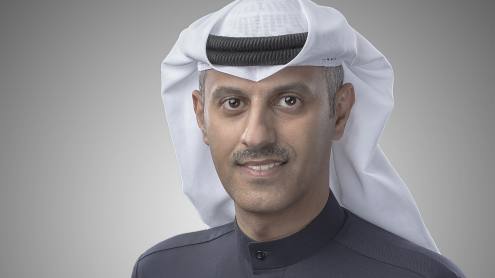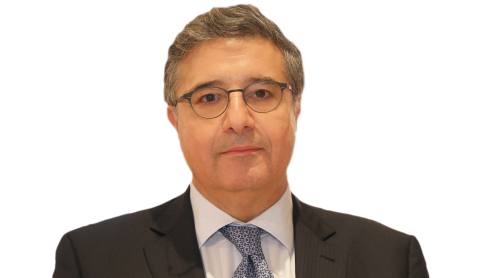Q: Kuwait’s budget is forecasting a 72% rise in revenues for 2022/23 compared with the previous year. How do you see the economic outlook for the years ahead?
A: The short-term liquidity pressures the country’s experienced over the past few years have certainly eased, due to the recovery in oil prices before the Ukraine crisis started, which will also help narrow the deficit gap in the current fiscal year.
That’s all good news, but the failure to pass a new debt law due to the current tension in the relationship between the government and parliament means that the ability to raise money on international markets to both cover debts and to fund capital expenditure and infrastructure projects is still far off. It’s hard to see how this situation will be solved.
In addition to the new debt law, significant reforms are still needed to lessen the reliance of the economy on oil prices. This is not a new problem — it’s been discussed by the government and other outside bodies for many years — but it’s hard to know when such reforms will be passed. It’s something that we continue to monitor.
Q: How has Boubyan fared during the pandemic?
A: We’re fortunate that we have a business model that is diversified between retail banking, corporate banking and wealth management. In the retail space we remain the third-largest player in Kuwait, and it’s a market segment that continues to provide benefit for our balance sheet.
Within the retail space our main focus is for Kuwaitis between the ages of 18–30, among whom we have a market share of close to 60%. We consider this market to be a key future investment; as they finish their studies and enter the workplace their financial needs continue to develop and we’re able to serve them.
For corporate banking we have a balanced portfolio that includes clients in the oil sector, contracting, real estate, healthcare, education, telecommunication, logistics and other trading services sectors. So we don’t have any worries about being too concentrated in one sector. We’ve been able to grow our corporate client base organically from our existing clients and by capturing additional market share from our competitors.
Q: Bank deposits dropped in Kuwait for the first time in 21 years in 2021. What is the outlook for your deposit base?
A: Our strong retail banking market share has helped us benefit from an overall growth in customer deposits. Our current and savings accounts represent around 35% of our deposit base currently. This has been important as competition for deposits has intensified since the start of the Covid-19 pandemic, with some government-related entities and [local pension fund] the the Public Institution for Social Security withdrawing deposits from local banks in search of higher yields elsewhere.
We anticipated this trend and had a plan to diversify our sources of funding, issuing a $500m sukuk in early 2021, and we’re currently working on a second issue. We’re also taking on other institutional deposits from reputable Gulf investors in countries such as Saudi Arabia, together with funding in the form of bilateral borrowing from foreign banks and foreign institutions. All the while we’re still maintaining the largest source of funding from our customer base. This has to remain the case, as it benefits our future growth.
Q: What is the outlook for credit growth in the coming year?
A: Credit has been challenging on both the retail and the corporate side, but we expect to maintain the level of growth that we’ve achieved over the past few years — either double-digit growth, or, in the worst-case scenario, in the high single-digits. This growth will be supported by opportunities at the corporate level via increased business from our existing clients and from new clients we’re onboarding.
We’re also hoping to grow our market share in retail via innovative new products and services we’re bringing to market on a regular basis, together with an expanded branch network.
Q: There are proposals for a new mortgage law in Kuwait to stimulate the housing market for Kuwaiti nationals. How significant will this be for the economy and the banking sector?
A: The proposed new law is seen as the only way forward because of Kuwait nationals’ growing housing needs, as the Kuwait Credit Bank has slowed down financing because of limitations on its capital until recently.
The new law [which will enable a greater number of Kuwaitis to access mortgage financing and will see the government pay interest on up to 50% of the mortgage loan] will benefit the economy significantly, as there are over 100,000 individuals waiting for housing. Of course, it will be a real game-changer for banks as well.
As with the debt law, however, there’s a significant challenge in getting such legislation passed at the moment.
Q: The Central Bank of Kuwait published licensing guidelines for digital-only banks last year and is set to decide on whether to licence new entrants by the end of the year. How will the entrance of digital-only banks impact traditional lenders, such as Boubyan?
A: Digital automation has been the buzzword in the banking sector for some time now; every bank at some level has taken action to digitise many of the services that they provide to the extent that many banks can now be considered semi-digital lenders and will possibly become fully digitised down the road.
The entrance of new digital-only banks will be the greatest challenge for those lenders that have been slower to automate their services. Those that have had their plans in place for a while, and have made progress with their new digital agendas, will find it a lot easier given their existing customer base.
Digitising the whole business is something that is opening up new opportunities for all banks. As operations become increasingly digitised, banks are in a better position to know more about their clients, their banking and spending habits, and lifestyle preferences, which will help them structure services and products to serve better customer needs. It’s going to be a very powerful trend in the future.
Two days after lockdown came into effect in early 2020 we became, in effect, a digital bank. We benefited enormously from the investment we’d made in our digital infrastructure, and the innovation we’d shown in the launch of a large basket of products and services. That helped us a lot. Nothing was discontinued, we continued to perform normally serving our clients in both corporate and retail via digital and virtual channels.
In 2021 we launched Nomo, our sharia-compliant digital bank in the UK in conjunction with Bank of London and the Middle East. Later this year, Nomo will offer some very interesting new services and products to our existing clients, and we plan to make it available for clients from the wider Gulf Co-operation Council (GCC) region as well as Kuwait.
Q: What is the appeal of launching such a banking proposition in the UK?
A: The UK remains the preferred destination for Kuwaitis and other GCC citizens, given the historic links with the region. It’s a country where many people have an active interest, whether it’s studying, tourism, or owning property or other investments.
Nomo is aimed at Gulf citizens and expats in the GCC with an interest in having an account in the UK. Sometimes there have been challenges for expats in the Gulf to open accounts in the UK, sometimes taking up to six months without success. We have tools in place that can cover all the know-your-customer requirements in a more convenient way, which gives us an edge over services offered by other banks.













